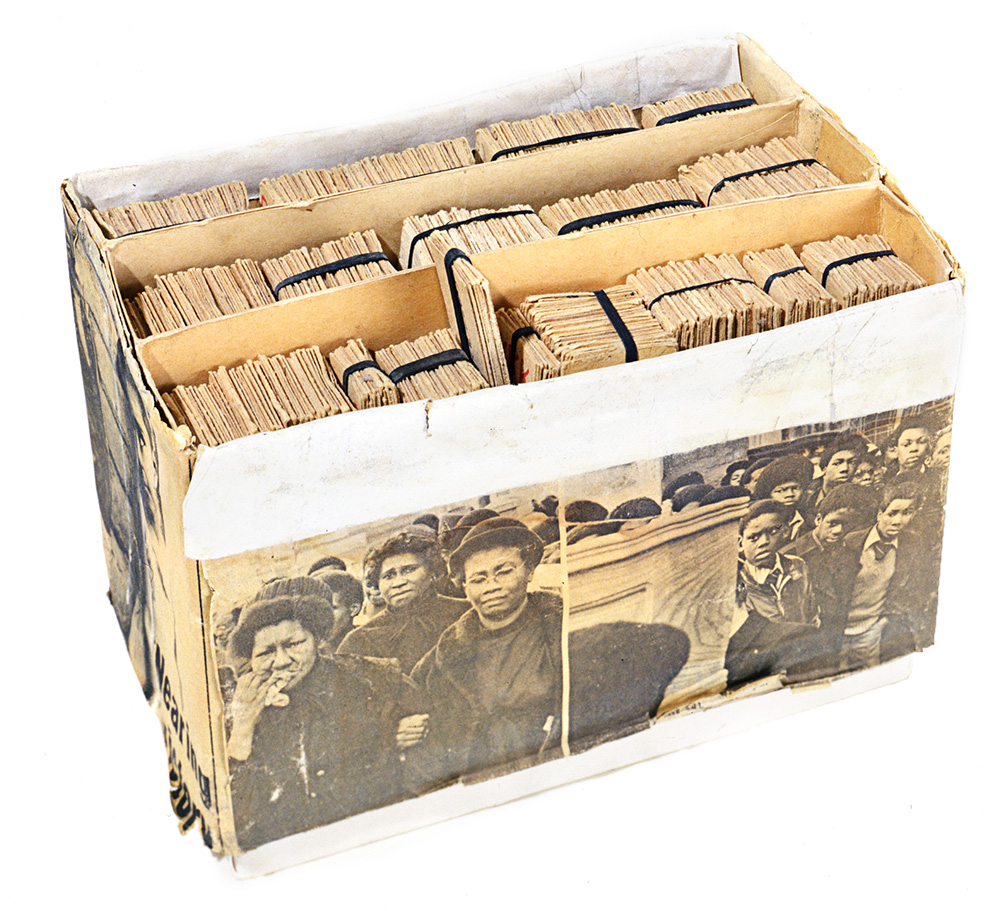
VOCABULARY CARD INDEX
dimensions: 25x15x14 cm
weight: 1.4 kg
weight: 1.4 kg
— This card index, by my reckoning, contains more than 2,000 cards. That means more than 2,000 English words. The system was that on one side you have the English word with a transcription and its part of speech. On the other side you have the Russian translation (...) It grew for a long time (...) It was really very convenient. The cards fit nicely in your hand, and they were easy to carry with you, to keep them in your pocket and study them when you were riding on the Metro, for example. On public transport. They were made out of thick cardboard and therefore they didn't get all bent up. They were really very convenient. The only thing was was that over time I grew out of them and I didn't need them anymore for the propaedeutic purpose they were made for (...) They aren't really basic English, but are rather words that present a certain amount of difficulty as regards memorizing them, and also words which you might encounter in special situations. The words were often explained with an example of their use in a sentence. As for dictionaries — well, with a dictionary you just look up the word and that's it. But with this method of study you can work with those words that you have difficulty with and create different groupings from them. In other words, you can really get them into… your brain is able to do what it needs to get the necessary stuff into your head. In the box they're in alphabetical order, just like in a dictionary, for convenience' sake. I was too lazy, unfortunately, to make a partition there. It's far from a masterpiece. I just gathered the words together alphabetically and tied them together with string. All the words that start from the same letter in one pile.

Konstantin Bokhorov
from Moscow
Share this
Share this
Random objects from Moscow region

